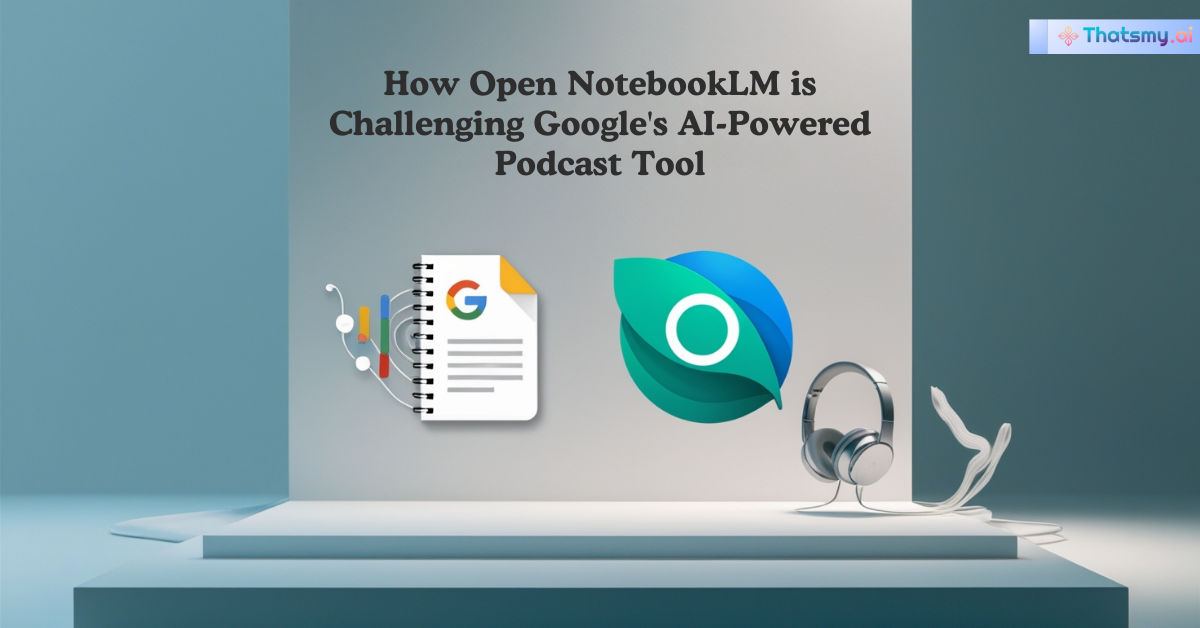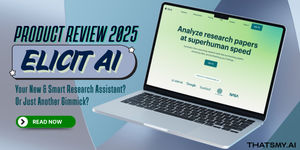Open NotebookLM is a new open-source tool developed as a free alternative to Google's NotebookLM. Created by Gabriel Chua, it converts PDF documents into podcast-style audio, allowing users to listen on the go. While Google's version offers more advanced features like summaries and integration into other services, Open NotebookLM is completely open-source and free, prioritizing user privacy. This easy-to-use tool offers a viable solution for those seeking convenience without sharing data with large tech companies, highlighting the growing power of open-source AI tools.

In today’s busy world, it can be hard to find time to read long PDF documents. Google introduced NotebookLM to help by turning PDFs into audio, so people can listen instead of read. But if you care about privacy or want a free, open-source option, Open NotebookLM might be what you need. It respects your privacy and is completely free to use.
Open NotebookLM is an open-source tool created by Gabriel Chua, a data scientist working at Singapore’s GovTech. The impressive part is that Gabriel built the first version of this tool in just one afternoon! He used existing AI models to make it work quickly and effectively. Open NotebookLM is designed to turn PDF documents into personalized podcasts, similar to Google’s NotebookLM, but with key differences: it’s privacy-focused, open-source, and costs nothing.
With Open NotebookLM, users can upload PDFs and convert them into audio content that sounds like a real conversation. It doesn’t just read the text—it makes it more interesting, like a podcast. The tool uses Meta’s Llama 3.1 model to understand the text and MeloTTS to create natural and expressive voices. It uses a user-friendly interface called Gradio, hosted on Hugging Face Spaces, making it simple for anyone to use—even if they aren’t tech-savvy.
PDF to Podcast Conversion: Upload a PDF, and Open NotebookLM will turn it into a conversation-style audio file. This makes the content easier to follow and more enjoyable to listen to.
User-Friendly Interface: Open NotebookLM was built using Gradio, making it extremely simple to use. You don’t need any special skills to get started.
Customizable Voices: The tool lets you choose different tones, like “fun” or “formal,” which makes it more engaging and flexible depending on what you want to listen to.
Privacy and Open-Source: Unlike Google’s NotebookLM, which might store your data in the cloud and could end up costing money in the future, Open NotebookLM is fully open-source. This means you can run it locally on your computer and keep full control over your data, ensuring privacy.
Google’s NotebookLM has more advanced features compared to Open NotebookLM. It can provide detailed summaries of documents, allows users to ask questions about the document, and integrates well with other Google services like Google Slides. This makes Google’s version a powerful tool for increasing productivity, as it can summarize information and help create presentations.
However, Google’s tool also has some drawbacks. It processes your documents in the cloud, which raises privacy concerns, especially if you are dealing with sensitive information. Also, Google often charges for its products after their initial launch, which means users may face fees in the future.
On the other hand, Open NotebookLM may not offer the advanced features of Google’s tool, but it has some significant advantages. Since it’s open-source, anyone can review the code, understand how it works, or even improve it. This transparency is great for users who want to control their own data and know exactly how their information is used. Plus, Open NotebookLM can be run locally, which means your files stay on your own system.
The rapid creation of Open NotebookLM shows how far open-source AI has come. In the past, building such advanced tools required large teams and significant resources. Today, thanks to open-source models and platforms like Hugging Face, individual developers can create powerful tools on their own. This shift is important because it allows more people to innovate without needing the support of big tech companies.
However, there are challenges. Open-source tools like Open NotebookLM don’t always go through the same level of testing as commercial products. This means that they might not be as reliable as tools developed by larger companies. Users should be aware that while Open NotebookLM is very useful, it may not be as stable as a tool backed by a big company with extensive quality testing.
Open NotebookLM presents both opportunities and challenges. One of the biggest advantages is that open-source tools are usually cost-effective and easy to customize. With Open NotebookLM, users can modify the tool to meet their specific needs, which makes it highly flexible and ideal for personal projects.
But there are challenges too. Since this is an open-source tool, technical support may be limited. You might not get updates as quickly as you would with commercial products, and security patches could be delayed. Additionally, because it’s open-source, there is always a risk that the technology could be misused. Developers and users need to ensure these tools are used responsibly and ethically.
Open NotebookLM is a great choice for users who want to convert PDFs into podcasts while keeping their data private. It may not have all the advanced features of Google’s NotebookLM, but it is simple to use, accessible, and open-source. This makes it perfect for people who value privacy and want control over their data.
As AI technology continues to advance, we are likely to see more tools like Open NotebookLM, giving users more options and encouraging big tech companies to create more user-friendly and transparent products. Open NotebookLM is a good example of what the open-source community can achieve, and it is worth checking out if you want to change the way you consume information. You can explore Open NotebookLM on Hugging Face or GitHub to see how it can help you in your daily life.
Sign up to gain AI-driven insights and tools that set you apart from the crowd. Become the leader you’re meant to be.
Start My AI Journey
ThatsMyAI
20 March 2025

ThatsMyAI
7 March 2025